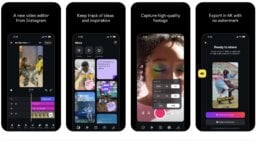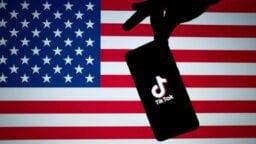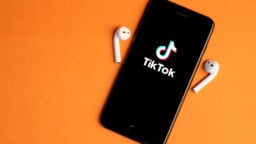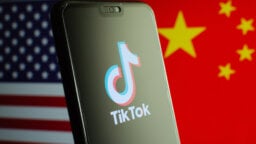The day has arrived.
From today (March 1), Universal Music Publishing’s catalog of ~4 million songs is no longer actively licensed for TikTok. Those songs join UMG’s portfolio of ~3 million recordings, whose license on TikTok expired (so far without renewal) on February 1.
Universal Music Publishing Group has in the past 24 hours written a new missive to its songwriters, many of whom will inevitably be disappointed to see their creations pulled down from TikTok due to their licenses running out.
We publish that statement in full below, in which UMPG turns much of its attention to the role AI-generated audio is playing on TikTok.
UMPG claims that, so far, TikTok has not provided Universal with any assurances that the platform won’t train its AI models on the music company’s songs.
In addition, UMPG raises the specter of TikTok potentially using AI music to push down the market share (and therefore the earnings potential) of copyrighted/licensed music on the platform.
At this stage, forgive us for noting that MBW has been discussing the hypothetical potential for TikTok and other services to stuff their catalogs with AI-made music – diluting the market share of traditional rightsholders – for some time.
Pointedly, last year, a few days after the Grammys, we published an ‘MBW Reacts’ article asking if TikTok could pull off a “heist” on the music industry in this regard, following its aggressive investment in generative AI technology.
The “heist” we were referring to: Using licensed music as a cornerstone in the rise of TikTok to well over a billion users globally, before using first-party, AI-created songs to crowd out music owned by traditional music rightsholders on the platform.
We wrote: “With music playing such a key role in TikTok’s rise, if major label content does disappear from the platform – and the gap is somehow successfully filled by indie and AI-driven creations – TikTok could be said to have pulled off one of the biggest heists in music business history. A bait and switch for a billion users.”
UMPG’s statement, issued late yesterday (February 29), is published in full (in italics) below:
TikTok is removing UMPG songs because there is no license in place. As you may have heard, to date, they have not agreed to recognize the fair value of your songs, which so many other digital partners around the world have done.
As we previously addressed in our open letter, in addition to fair compensation for your songs, the negotiations have also focused on two other critical and equally important issues: protecting you, human artists and songwriters, from the harmful effects of AI; and online safety for TikTok’s users, including your fans which include young children.
TikTok’s intentions with respect to AI are increasingly apparent. While refusing to respond to our concerns about AI depriving songwriters from fair compensation, or provide assurances that they will not train their AI models on your songs, recent media reports reveal “TikTok and ByteDance leaders have long wanted to move the app beyond music.” Reflecting on our open letter, other commentators have noted where this distancing from the music industry could lead, fueled by AI: “TikTok has an incentive to push the use of these AI recordings rather than the copyrighted and licensed recordings.”
Every indication is that they simply do not value your music.
We understand the disruption is difficult for some of you and your careers, and we are sensitive to how this may affect you around the world. We recognize that this might be uncomfortable at the moment. But it is critical for the sustained future value, safety and health of the entire music ecosystem, including all music fans.
As always, UMPG will only support partners that value songwriters, artists and your songs. We have a long history of successfully fighting for our songwriters and will continue to do so. You should expect nothing less from us.”
UMPG’s new letter repeats some of the concerns previously addressed in UMG’s open letter from the end of January when it first revealed the bombshell news that it would not be renewing its licensing deal with TikTok.
Amongst those concerns are compensation for artists and songwriters, plus TikTok’s handling of online safety and the ‘the harmful effects of AI.’
“We understand the disruption is difficult for some of you and your careers, and we are sensitive to how this may affect you around the world. But it is critical for the sustained future value, safety and health of the entire music ecosystem, including all music fans.”
Universal Music Publishing Group
MBW broke the news in 2022 that TikTok and parent company ByteDance were hiring for a number of highly-skilled machine learning and AI music creation specialists in both the US and China.
That hiring spree followed its acquisition in July 2019 of Jukedeck, a UK-based AI Music startup that specialized in creating royalty-free music for user-generated online videos.
Last summer TikTok’s parent ByteDance launched a new AI-powered music-making app that can turn a hummed melody into a song.
And in January we learned that TikTok is testing a feature called ‘AI Song’ on its platform that uses a large language model to power lyric generation prompted by text inputs.
Universal is clearly very deeply concerned about what all this testing of and investment in AI means for its artists and songwriters.
UMG’s publishing company told songwriters in an additional statement on Instagram yesterday that “TikTok wants AI-generated recordings to reduce payments to human artists and songwriters”.

In addition to its investment in AI expertise, TikTok even tested if it could survive without major label content on its platform in Australia by muting some major label music for some users in that market last year.
The number of people using the app in the market declined (according to figures from Data.ai via Bloomberg) after that test was rolled out – though sources within TikTok dispute these figures.
On Tuesday (February 27) TikTok announced that it had already started to remove all music licensed by UMPG from TikTok ahead of the deadline today (March 1).
The impact of UMPG’s catalog removal will be far-reaching. Any hit written or co-written by a UMPG-signed songwriter whose recording is released via a non-UMG label needs to come down from TikTok because UMPG’s license with the service has expired.
Senior music industry sources have told MBW that somewhere between 60% and 80% of “relevant repertoire” on TikTok – i.e. current and proven hits – will be impacted by TikTok’s removal of UMG’s (combined) publishing and recorded music repertoire.
A TikTok spokesperson disagreed with this estimate this week. They told us that “in the US and UK, UMG and UMPG combined [comprises] approximately 30% of popular music on the platform, and even less everywhere else”.
The impact of losing Universal’s songs and recordings on TikTok’s own engagement and user base is another fierce subject of debate.
As MBW reported on Tuesday (February 27) a senior TikTok figure told us: “We have not lost users since the removal of UMG’s catalog; millions of people are still creating videos and discovering new music every day on TikTok”.
On Universal Music Group‘s earnings call on that same day, however, Michael Nash, EVP and Chief Digital Officer of UMG, cited data from Apptopia suggesting that total user time spent on TikTok in the second half of February has fallen slightly vs. the same period of the prior year.
“We remain committed to reaching an equitable agreement with Universal Music Group.”
TikTok
In a statement issued on Wednesday, TikTok said: “We are in the process of carrying out Universal Music Group’s requirement to remove all songs that have been written (or co-written) by a songwriter signed to Universal Music Publishing Group, based on information they have provided. Their actions not only affect the songwriters and artists that they represent, but now also impact many artists and songwriters not signed to Universal.
“We remain committed to reaching an equitable agreement with Universal Music Group. In the meantime, music lovers can continue to enjoy, discover and share millions of tracks from artists, songwriters and labels on TikTok, and we will continue to connect all artists – including those whose music is not currently available on our platform – with their fans.”Music Business Worldwide




